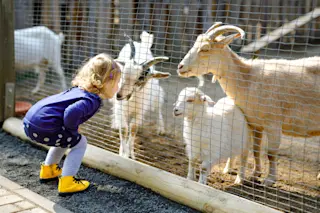There are a lot of factors that push people toward conservation, from an interest in preserving species for their contributions to human health to an inclination to protect them for their control of pollutants, pests, or overpopulated prey. But one of the most powerful forces that causes people to support conservation is anthropomorphism — the tendency to see animals as similar to humans.
According to a new study in iScience, several social factors are tied to our tendency to anthropomorphize other species, including our social integration, our education, and our experience with animals, to name a few. These factors, the study authors say, have potentially important impacts on our willingness to support animal conservation, at least on the basis of an animal’s similarity to ourselves.
“Anthropomorphism significantly influences conservation efforts,” said Federica Amici, a study author and researcher at Leipzig University in Germany, according to a press release. “Species that ...















